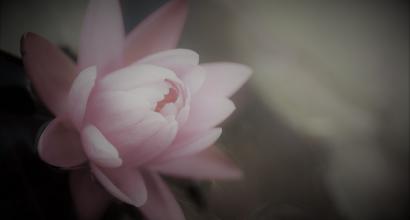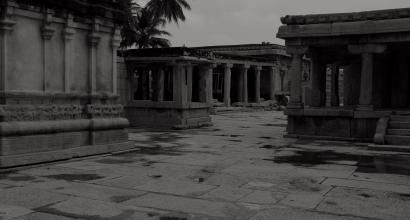Tenderness of Mind
Sarma would never accept any opinion only on the ground that it was being followed from ancient times. This didn’t mean that he would oscillate on grounds of logic either. He always strove to establish the superiority of the emotional world. He emphasized emotional content over literal meaning.
Although most of the aspects that Sarma noticed, we would appear to notice too, we would realize its importance only after Sarma pointed them to us.
Let’s have a look at the words of Sarma when he writes about ‘Vīṇā’ Sheshanna – “Does he have any hesitation while appreciating an artiste with a ‘Bravo!”? During a concert, if there was even a single wonderful musical movement, we heard his appreciation earlier than anyone else’s. If a mild paluku was sung, his heart melt first, his eyes would moisten first, racing ahead in comparison to everyone else!”[1]
“Once while playing and elaborating Rāga Kāpi during the latter part of a concert, he [Sheshanna] was so overwhelmed by the soulful play of notes of that rāga and by its melody and rhythm that he ended up experiencing nāda-samādhi; he placed his head on the vīṇā and tears profusely flowed down his eyes. He had to stop playing the vīṇā and he told the audience, “Kindly excuse this old man. I cannot play anymore!” This divine behaviour of his amazed everyone. Despite having a great sense and balance of musical melody in us, we were all ashamed that we were unable to experience that kind of involvement and delicacy in us.”[2]
It is from these reactions of Sarma that we can make out his sensitive and subtle mind.
Objective Analysis
We must understand that Sarma’s emotions were grounded in objective analysis. A single illustration would suffice to drive home this point. It was quite natural for Sarma to appreciate the contribution of Tyāgarāja to Carnatic music. However, this did not dissuade him from making an objective analysis of Tyāgarāja’s literature. Sarma said, “Except one or two people who could pierce through the mental fences and barricades, the bhakti-mārga of Tyāgarāja is a fruit that remains out of reach for the commoners. Even if we were to reach it, we cannot eat it and if we were to eat it, we cannot digest it. None of his compositions can be said to portray any artificially imposed emotions. Although the scope of the lyric is narrowed down to just two primary emotions – Rāma-bhakti and his [Tyāgarāja’s] own mukti – he has immense talent to be able to tread new paths and shine. He ultimately joins us and appears to be one among us, seldom ending up being a mūrti meant solely for meditation and veneration.” On the other hand Sarma had the courage to say the following words when he discussed the strength of the language in Tyāgarāja’s works – “With the energy of Tyāgarāja left wanting to edit or choose the appropriate and emotive words, and being devoid of proper selection or culturing, his lyrics have remained primitive like a country maiden… My submission is, not only has Tyāgarāja sometimes violated the rules of grammar but he has done so in an unnatural manner… His emotions too depict the aforementioned deficiencies at several places… Bereft of the patience and intelligence to express the intended emotions in a clear and straightforward manner, it drags with the sole hope of completing a sentence and abiding the rules of prosody. Such compositions are also not a few.”[3]
Sarma also writes, “We can discern that Tyāgarāja has not been able to identify the secret of poetical compositions to the extent he has carefully recognized the subtleness of musical knowledge. His language staggers while it tries to keep up with the great emotional outpouring… If appropriate language is unable to immediately flow and catch up with the speed of his musical creations when an emotion gets triggered, Tyāgarāja believes that to be the mistake of the language and not his! Many of his compositions bear testimony to such an indifferent attitude. This problem persists for everyone who writes a song. Tyāgarāja is the only great poet who could escape such a problem at least in some of his compositions amongst all those who wrote songs in Telugu language.”[4]
Savouring Beauty
Having said this, I must add one more thing. It was not Sarma’s intent to criticize Tyāgarāja while putting his works to the touchstone of aesthetics in literature. He did not try to prescribe hard and fast rules for a poetical composition either. It was his faith that “Beauty is something that should be enjoyable and savoured. Therefore it must be rich with nuances and intricacies. Melody is the primary facet of music and once that is established, scholarship may follow, or perhaps it must follow!
“The element of surprise is a known enemy for advancement in the world of art. Many artistes have lost their talent and strength, falling prey to this. The foremost enemy of astonishment is knowledge. We do not get surprised in matters that are already well known to us. Therefore, we must equal the artist at the pedestal of his knowledge and compel him to rise to greater heights. It is only thereafter that his artistry will be truly tested. If connoisseurs end up being attached to the initial pedestal without taking any steps to improve their knowledge, there would hardly be any necessity for the artiste to improve himself.”[5]
Clarity
There are only a few who have made a thorough and detailed analysis of the process of musical compositions and enjoyment to the extent made by Sarma. His evaluation of varied subjects like comparative study of Carnatic and Hindustani music, the relationship between music and literature, characteristics and the objective [of music], aspects of devotional music, music and ṣṛṅgāra, an examination of the musicality of Jayadeva’s Gīta-govinda, the lyrics and singing of padams, and musical elements of Vālmīki Rāmāyaṇa are exceptional.
There is hardly anyone who has been able to match Sarma’s ability in accurately pointing out the subtle elements and details that could be considered as the criteria for aesthetics in both literature and music.
To be concluded...
This English adaptation has been prepared from the following sources –
1. Ramaswamy, S R. Dīvaṭigègaḻu. Bangalore: Sahitya Sindhu Prakashana, 2012. pp. 122–55 (‘Rāḻḻapalli Anantakṛṣṇaśarmā’)
2. S R Ramaswamy’s Kannada lecture titled ‘Kannaḍa Tèlugu Bhāṣā Bèḻavaṇigègè Di. Rāḻḻapalli Anantakṛṣṇaśarmaru Sallisida Sevè’ on 11th July 2010 (Pāṇyam Rāmaśeṣaśāstrī 75 Endowment Lecture) at the Maisūru Mulakanāḍu Sabhā, Mysore.
Thanks to Śatāvadhāni Dr. R Ganesh for his review and for his help in the translation of all the verses that appear in this series.
Edited by Hari Ravikumar.
Footnotes
[1] Sarma, R Anantha Krishna. Gānakalè. Mysore: Kāvyālaya Publishers, 1973. p. 2
[2] Ibid., p. 3
[3] Ibid., pp. 65–67
[4] Ibid., p. 178
[5] Ibid., pp. 110–11











































